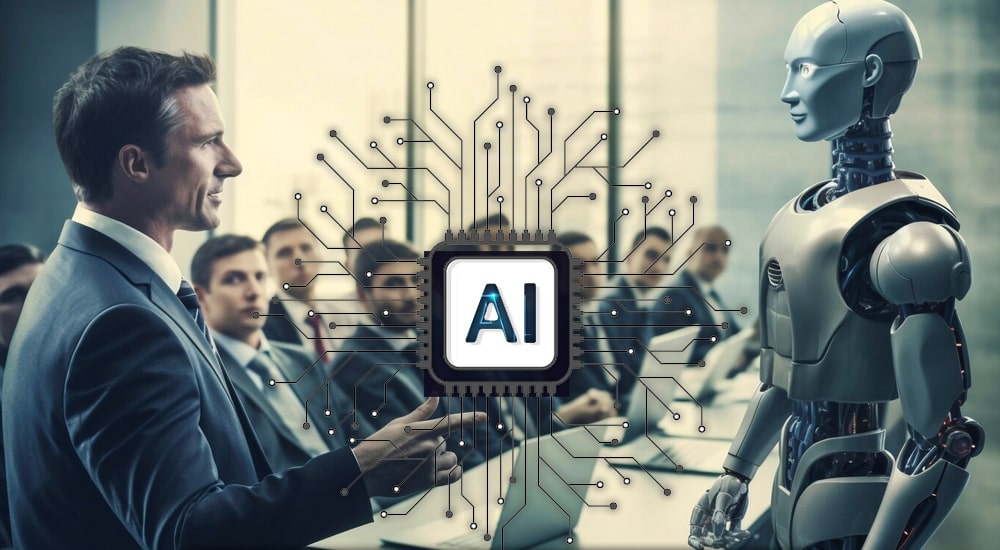
In today’s tech-driven landscape, artificial intelligence (AI) is fundamentally changing the recruitment process. Gone are the days of manually reviewing endless resumes—AI has streamlined many of the steps involved in hiring, making recruitment faster, smarter, and more data-driven. But while AI offers great advantages, it also presents unique challenges. Here’s a fresh look at how AI is reshaping recruitment.
Advantages of AI in Recruitment
1. Faster and More Efficient Processes: AI-driven platforms can significantly speed up the hiring process by automating repetitive tasks like resume screening, candidate sourcing, and initial communication. This lets recruitment teams focus on more strategic functions, such as engaging with top talent and conducting interviews. Tools like chatbots can handle common inquiries from candidates, saving time for recruiters and ensuring quick responses.
2. Precise Candidate Matching: Using sophisticated algorithms, AI can assess a wide range of factors to help identify candidates who best fit the role. Beyond simple keyword matching, AI evaluates skills, experience, and even traits that align with company culture. This data-driven approach helps recruiters find ideal candidates faster and more accurately than ever before.
3. Promoting Diversity and Reducing Bias: A well-designed AI system can help minimise unconscious bias by focusing solely on candidate qualifications and skills. By anonymizing certain details like name, gender, and background, AI ensures a more objective evaluation, encouraging greater diversity in hiring. This helps create more inclusive workplaces where a broader range of talent is considered.
4. Lower Costs and Better Resource Management: With AI handling much of the preliminary work, companies can save on recruitment costs. The technology reduces the need for extensive manual review, minimising both time and expenses related to hiring. Furthermore, AI helps prevent costly hiring mistakes by providing more accurate candidate assessments.
5. Improving Candidate Experience: AI can enhance the candidate journey by offering real-time updates, faster responses, and personalised interactions. Automated tools like chatbots can provide 24/7 communication, answer questions, and even schedule interviews. Candidates benefit from a smoother, more responsive process, which can leave a positive impression of the company.
Challenges of AI in Recruitment
1. Algorithmic Bias: Despite its potential to reduce bias, AI can inadvertently reinforce it if trained on biassed data. For instance, if the system is fed past hiring data with inherent biases, those same biases could be reflected in AI’s recommendations. Careful calibration and ongoing monitoring are crucial to ensure fairness in hiring outcomes.
2. Lack of Human Connection: While AI can streamline processes, it may lack the personal touch that human recruiters bring. Factors like a candidate's enthusiasm, interpersonal skills, or ability to communicate effectively often require human judgement. Relying solely on AI could risk overlooking candidates who might excel in ways the algorithm cannot measure.
3. Privacy and Data Security: As AI tools collect and analyse personal information, ensuring data privacy is a growing concern. Companies must navigate strict regulations on data protection and implement strong cybersecurity measures to safeguard candidate information. Any breach could not only damage the company's reputation but also violate legal requirements.
4. Over-Dependence on Automation: An over-reliance on AI can lead to a "set it and forget it" mentality, where recruiters may stop questioning the results the system provides. While AI can assist in decision-making, human oversight is essential to catch nuanced factors that the technology might miss. AI should complement human intuition, not replace it.
5. Complexity of Integration Implementing: AI in recruitment isn’t as simple as flipping a switch. It often requires significant investment in both software and training. Smaller businesses or those with limited technical expertise may find it challenging to adopt AI solutions, which could create a gap between larger corporations and startups in terms of recruitment capabilities.
The Future of AI in Recruitment
AI in recruitment is still evolving, but its influence is here to stay. As AI systems improve, they will likely handle more sophisticated tasks, from gauging soft skills to predicting long-term employee success. However, it’s important for companies to adopt AI with a clear strategy, ensuring that it complements human judgement rather than fully automating decisions.
The future of recruitment will likely be a blend of human and machine collaboration. AI will handle data-heavy tasks efficiently, while human recruiters focus on building relationships, assessing cultural fit, and making final hiring decisions. This hybrid approach can unlock the true potential of AI, maximising both efficiency and personal connection.
Final Thoughts
AI is undeniably transforming the recruitment landscape, bringing incredible advantages like speed, precision, and cost savings. However, challenges such as algorithmic bias, lack of personal touch, and data privacy concerns remind us that AI should be applied thoughtfully. When used effectively, AI can empower recruiters to make smarter, faster, and more inclusive hiring decisions without losing the human element that makes the process truly meaningful.
In the end, AI is not here to replace recruiters, but to enhance their capabilities—offering tools that make recruitment more effective while maintaining the vital human touch. Want to know more visit our website talentgnome.com





